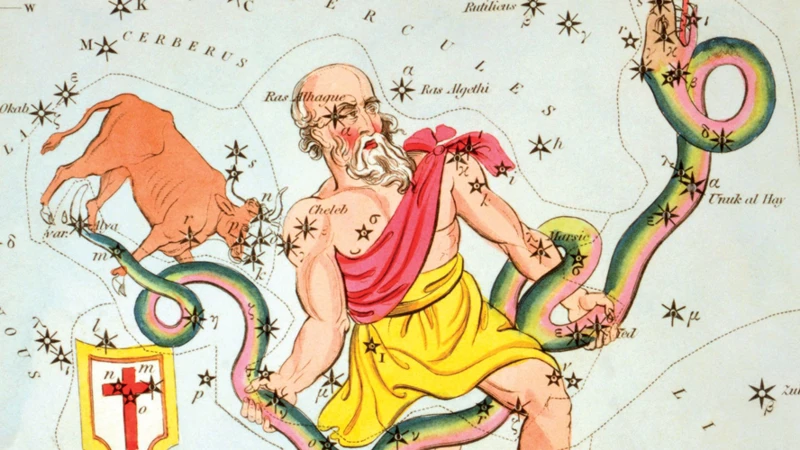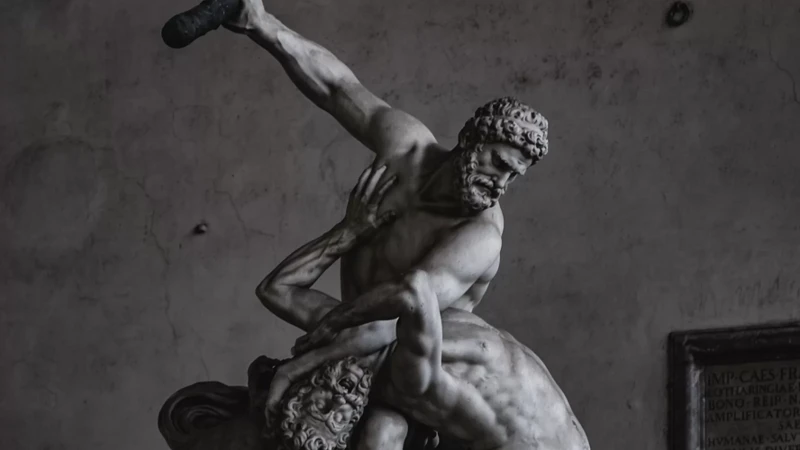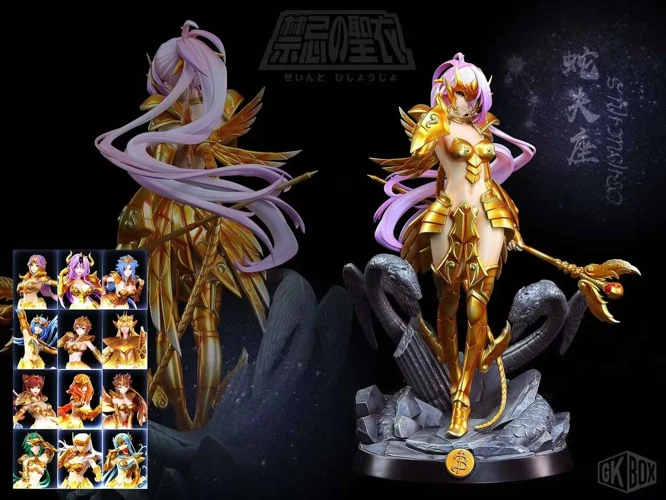The ancient tale of Hercules, a legendary figure of strength and heroism, has captivated audiences for centuries. This extraordinary story depicts the transformation of a mortal into an immortal hero through a series of epic quests and daunting challenges. From his extraordinary birth to his ascension to immortality, the journey of Hercules is filled with awe-inspiring feats and moments of triumph. Join us as we delve into the captivating narrative of Hercules, exploring his birth, his legendary Twelve Labors, his redemption, and ultimately, his ascension to becoming an immortal hero. Brace yourself for a journey that will transport you to a world of gods, monsters, and unparalleled heroism.
Contents
- The Birth of Hercules
- The Twelve Labors
- The Redemption
- Ascension to Immortality
- Conclusion
- Frequently Asked Questions
- References
-
Frequently Asked Questions
- 1. What is the origin of Hercules’ superhuman strength?
- 2. How did Hercules become a hero?
- 3. What were Hercules’ most remarkable achievements?
- 4. Did Hercules face any challenges during his Twelve Labors?
- 5. How did Hercules redeem himself after committing a terrible crime?
- 6. What was the cause of Hercules’ death?
- 7. How did Hercules become an immortal hero?
- 8. Was Hercules the only hero in Greek mythology to achieve immortality?
- 9. How did Hercules’ journey from mortal to immortal inspire future generations?
- 10. Why is Hercules still revered as a legendary hero today?
- References
- Read More
The Birth of Hercules

Legend has it that Hercules, also known as Heracles, was the son of Zeus, the king of the gods, and Alcmene, a mortal woman. Zeus, smitten by Alcmene’s beauty, disguised himself as her husband Amphitryon and visited her for a night of passion. As a result of this divine union, Hercules was conceived. This extraordinary birth came with a twist, as Zeus also impregnated another mortal woman named Hera at the same time, causing a rivalry that would define Hercules’ life.
The birth of Hercules was no ordinary event. His arrival into the world was accompanied by tremendous forces. Hera, filled with jealousy and anger, sought to prevent his birth from happening. She sent two serpents to attack the infant Hercules, but to her dismay, the newborn hero displayed incredible strength even at such a young age. He strangled the serpents with his bare hands, proving his mighty potential.
Hercules’ exceptional strength was not his only extraordinary attribute. The gods had blessed him with exceptional courage, intelligence, and a fighting spirit unparalleled by any mortal. As he grew older, Hercules developed into a towering figure known for his incredible physique and formidable skills in combat. Little did he know that his destiny would be tied to a series of incredible tasks and adventures that would make him the stuff of legends.
So began the incredible journey of Hercules, a mortal with the blood of the gods coursing through his veins. No ordinary hero, his birth alone was a testament to his extraordinary nature. It was only the beginning of a thrilling saga that would see him face unimaginable challenges, achieve greatness, and ultimately secure his place among the immortals.
The Twelve Labors

The Twelve Labors, undoubtedly the most renowned chapter of Hercules’ odyssey, showcased his immense strength, bravery, and cunning. These labors were a penance imposed on Hercules by King Eurystheus as a punishment for the madness-induced slaying of his own wife and children. Each labor presented a formidable challenge, pushing Hercules to his limits and beyond. From slaying the invulnerable Nemean Lion with his bare hands to capturing the elusive Golden Hind of Ceryneia, Hercules exhibited his unparalleled might and unwavering determination. He wrestled the menacing Lernean Hydra, a monstrous serpent with multiple heads that grew back when severed, and flawlessly completed the seemingly insurmountable tasks of cleaning the Augean Stables and capturing the ferocious Erymanthian Boar. The Stymphalian Birds, with their metallic feathers and piercing cries, proved to be another daunting adversary, vanquished by Hercules’ skill with a bow and arrow. These labors pushed Hercules to his very limits, both physically and mentally, but he emerged victorious in every single trial, showcasing his divine lineage and earning the respect and awe of mortals and gods alike. The Twelve Labors immortalized Hercules as the epitome of heroism and established his legend as one of the greatest champions of all time.
Labors 1-4: Defeating Nemean Lion, Lernean Hydra, and Ceryneian Hind
The Twelve Labors of Hercules are legendary trials bestowed upon him by King Eurystheus, commanded by the vengeful goddess Hera. These labors were meant to test the mettle of Hercules and purge him of his past sins. The first four labors witnessed the display of Hercules’ immense strength and cunning.
1. Defeating the Nemean Lion: Hercules’ first labor was to slay the ferocious Nemean Lion, a monstrous creature with impenetrable golden fur. Armed with his mighty club and lion hide, Hercules embarked on a perilous hunt. He pursued the lion into its dark cave and engaged in a fierce battle. Unable to pierce the lion’s hide with any weapon, Hercules eventually strangled the creature to death, using his bare hands and relying on his indomitable strength.
2. Triumph over the Lernean Hydra: The second labor proved to be even more daunting for Hercules. He faced the formidable Lernean Hydra, a serpent-like beast with venomous heads that regenerated when severed. Hercules devised a strategy to overcome the challenge. With the assistance of his nephew Iolaus, he cauterized each hydra head he severed, preventing them from regenerating. Finally, after a grueling struggle, Hercules managed to slay the Hydra and successfully completed his second labor.
3. Capturing the Ceryneian Hind: Hercules’ third labor required him to capture the sacred Ceryneian Hind, a magnificent deer with golden antlers, sacred to the goddess Artemis. Known for its incredible speed and agility, the hind proved to be a challenging quarry. Hercules showcased not only his physical prowess but also his cunning. After a year-long pursuit, he managed to capture the hind alive, careful not to harm it, and returned it to Eurystheus.
4. Capturing the Erymanthian Boar: For his fourth labor, Hercules was tasked with capturing the ferocious Erymanthian Boar. This monstrous boar ravaged the lands of Erymanthus, terrorizing the people. Hercules tracked the boar down, cornering it in its lair. Using his strength and wit, he captured the boar alive and brought it back to King Eurystheus.
With the completion of these four labors, Hercules proved himself to be a formidable hero, showcasing his exceptional strength, resourcefulness, and bravery. Yet, there were still eight more labors that awaited him, each more perilous than the last. Hercules persevered, knowing that the completion of these labors would be a stepping stone towards his redemption and the path to immortality.
Labors 5-8: Capturing Erymanthian Boar, Augean Stables, and Stymphalian Birds
In the ongoing saga of Hercules’ Twelve Labors, the hero faced a new set of challenges in Labors 5-8. Each labor pushed his physical and mental abilities to their limits, demonstrating his unwavering determination and unmatched valor.
Labor 5: The Capture of the Erymanthian Boar
Hercules was tasked with capturing the massive and ferocious Erymanthian Boar, a creature that terrorized the region of Mount Erymanthus. Tracking the boar through treacherous terrain, Hercules eventually cornered it and managed to subdue the beast using his immense strength. He then returned the boar alive to King Eurystheus as proof of his accomplishment.
Labor 6: Cleaning the Augean Stables
In his next labor, Hercules was instructed to clean the Augean Stables, which were home to thousands of cattle and had not been cleaned in years. Instead of using sheer force, Hercules devised a clever plan. He diverted the course of nearby rivers, allowing the rushing waters to swiftly flow through the stables and cleanse them in a single day. This ingenious approach showcased his resourcefulness and problem-solving skills.
Labor 7: Slaying the Stymphalian Birds
Next on Hercules’ list was the eradication of the Stymphalian Birds, winged creatures with sharp bronze feathers that ravaged the town of Stymphalos. Armed with a bow given to him by the god Apollo, Hercules used various tactics to scare the birds into flight, shooting them down one by one. The feat required incredible accuracy and agility, as the birds were swift and dangerous. Hercules’ success in eliminating this menacing threat showcased his mastery of both archery and strategy.
Labor 8: Capturing the Cretan Bull
For his eighth labor, Hercules journeyed to Crete to capture the mighty Cretan Bull, a creature that wreaked havoc on the island. With his unmatched strength, Hercules wrestled the bull into submission, demonstrating his ability to tame even the most formidable beasts. He then safely transported the bull back to King Eurystheus, completing yet another daunting task.
These labors highlighted Hercules’ bravery, intelligence, and sheer physical prowess as he triumphed over a variety of adversaries. With each success, his legend grew, and his reputation as a true hero solidified. The remarkable accomplishments of Labors 5-8 showcased not only Hercules’ divine lineage but also his unwavering determination to fulfill his destiny as a champion and protector of humanity.
Labors 9-12: Obtaining Cretan Bull, Mares of Diomedes, Hippolyta’s Girdle, and Apples of Hesperides
Hercules’ journey to becoming an immortal hero reached its climax with his final four labors. In his ninth labor, Hercules was tasked with capturing the Cretan Bull, a fearsome creature that had been causing havoc on the island of Crete. With his incredible strength, he managed to subdue the bull and bring it back as proof of his triumph.
The tenth labor presented Hercules with a gruesome challenge – obtaining the man-eating Mares of Diomedes. These ferocious horses, known for their insatiable appetite for human flesh, posed a great threat. However, Hercules devised a plan to pacify them. He fed the horses with Diomedes himself, taming them and fulfilling his task.
Hercules then set his sights on Hippolyta’s Girdle for his eleventh labor. Hippolyta, the queen of the Amazons, possessed a magical girdle that Hercules needed to secure. With his charisma and prowess, Hercules managed to win over the Amazon queen, and she willingly handed him the coveted girdle.
The final labor proved to be the most treacherous of all – obtaining the Apples of Hesperides. These golden apples, a sacred gift from the gods, were guarded by a dragon and the Hesperides nymphs. Hercules, undeterred, sought the help of Atlas, the titan who held up the heavens. In exchange for holding the heavens, Atlas retrieved the apples for Hercules, allowing him to complete his final task.
With the successful completion of these four labors, Hercules had proven himself to be an unparalleled hero. Each labor tested his physical strength, cunning, and resourcefulness. The tasks were not without their hardships, but Hercules’ unwavering determination and divine gifts propelled him forward. He emerged victorious, having conquered all challenges set before him.
These labors showcased not only Hercules’ physical prowess but also his character and resilience. Through his triumphs, he had earned his place among the immortals and secured his status as the greatest hero of Greek mythology.
The Redemption

After Hercules completed his Twelve Labors, he found himself seeking redemption for his past misdeeds. His path to redemption was marked by a series of epic quests and trials that tested his character and strength. One of the most well-known quests was his pursuit of the Golden Fleece. This legendary artifact was said to possess incredible powers and was guarded by a formidable dragon. With his indomitable spirit and unwavering determination, Hercules embarked on a perilous journey with a band of heroes known as the Argonauts. Together, they faced numerous challenges, including treacherous seas, mythical creatures, and powerful sorcery. In the end, Hercules played a crucial role in obtaining the Golden Fleece, proving himself as a true hero and redeeming his past transgressions. This quest not only showcased his physical prowess but also his inner growth and the redemption he sought. Hercules’ journey towards redemption was far from over, as he continued to face new challenges and adversaries, ultimately carving a path towards his immortal destiny.
Quest for the Golden Fleece
The Quest for the Golden Fleece is one of the most renowned chapters in the adventurous life of Hercules. It all began when Pelias, the usurper king of Iolcus, sought advice from an oracle. The oracle warned Pelias that a man wearing a single sandal would ultimately bring his downfall. Little did Pelias know that this prophetic statement would bring him face to face with the great hero Hercules.
Hercules, being a descendant of the rightful king of Iolcus, was determined to claim his rightful throne. He set sail on the famed ship called the Argo as one of the Argonauts, a group of renowned adventurers and heroes. Their goal was to retrieve the mythical Golden Fleece, a symbol of kingship and power. This treasured artifact was said to be found in the distant land of Colchis.
The journey was arduous and filled with perilous encounters. Along the way, Hercules and his fellow Argonauts faced numerous challenges, including overcoming the clashing rocks known as the Symplegades, defeating the harpies, and surviving a powerful storm created by the god of the sea, Poseidon. Despite these obstacles, Hercules proved his mettle and unwavering determination.
Upon reaching Colchis, Hercules and the Argonauts faced their greatest test yet. King Aeetes, the ruler of Colchis, agreed to hand over the Golden Fleece only if Hercules performed seemingly impossible tasks. With the help of the sorceress Medea, who had fallen in love with Jason, the leader of the Argonauts, Hercules was able to complete these tasks.
First, he had to harness and plow a field using fire-breathing oxen. Through his extraordinary strength and cunning, Hercules managed to accomplish this feat. Then, he had to defeat the dragon that guarded the Golden Fleece. With his mighty weapons and unmatched valor, Hercules emerged victorious, seizing the coveted fleece.
The successful completion of the Quest for the Golden Fleece cemented Hercules’ status as a true hero. His courage, physical prowess, and strategic thinking enabled him to overcome seemingly insurmountable challenges on his path to obtaining the Golden Fleece. This significant achievement not only contributed to the restoration of his rightful place as the king of Iolcus but also further solidified his legendary status among mortals and gods alike.
Defeating the Giants
Defeating the Giants was one of the most significant challenges that Hercules faced during his incredible journey to redemption and immortality. These monstrous creatures, known as the Gigantes, were offspring of the primordial gods Gaia and Uranus, and they posed a grave threat to the gods and humanity alike.
The Gigantes were giants of immense size and strength, with each one possessing unique abilities. They waged a war against the gods in an effort to dethrone them and seize control of Mount Olympus. The gods, led by Zeus, called upon Hercules to aid them in this epic battle.
Armed with his indomitable strength and unwavering determination, Hercules fearlessly confronted the Giants. One by one, he engaged in intense combat with these formidable adversaries, using his various weapons and wits to overcome their immense power. With every mighty blow, Hercules showcased his incredible prowess and valiant spirit, proving himself worthy of his godly heritage.
Throughout the battle, Hercules faced giants of various forms and abilities. Encountering foes such as Alcyoneus, Porphyrion, and Enceladus, he displayed his strategic brilliance in addition to his unmatched physical strength. With the aid of his trusted weapons, including his powerful bow and arrows, he relentlessly fought against the Giants, ultimately defeating each one of them.
Hercules’ triumph over the Giants was not only a significant victory for the gods but also a testament to his true heroism and his unwavering commitment to protecting both the divine realm and humanity. By overcoming these colossal foes, Hercules solidified his place as a legendary hero, revered by gods and mortals alike.
The battle against the Giants marked a pivotal moment in Hercules’ quest for redemption. It showcased not only his physical might but also his strategic brilliance, highlighting the multifaceted nature of his heroism. With each triumphant victory, he inched closer to his ultimate goal of achieving immortality and securing his place among the gods of Olympus.
Ascension to Immortality

After many incredible adventures and trials, Hercules reached the pinnacle of his existence, his ascension to immortality. However, the path to achieving godhood was not an easy one. It all began with the tragic death of the mighty hero. Hercules met his demise through a plan orchestrated by the vengeful goddess Hera. Consumed with grief and guilt for his past transgressions, Hercules sought a way to redeem himself and earn a place among the gods. His opportunity for redemption came through the Twelve Labors, a series of seemingly impossible tasks he had to complete as punishment for his crimes. With determination and unmatched strength, Hercules conquered each labor, displaying his indomitable will and heroism. But it was his self-sacrifice in accepting his final labor, defeating the ferocious Cerberus and bringing the three-headed dog from the underworld, that ultimately led to his triumph. As a reward for his unwavering bravery and virtuous actions, Hercules was granted immortality, transcending his mortal existence to join the gods on Mount Olympus. Among the pantheon of gods and goddesses, Hercules found his place as a revered and immortal hero, forever remembered for his unparalleled strength, courage, and perseverance.
The Death of Hercules
The death of Hercules marked the end of his extraordinary journey as a mortal hero. After completing his Twelve Labors and achieving redemption for his past sins, Hercules faced a tragic fate. It was through a series of unfortunate events that he met his final moments.
One version of Hercules’ demise tells of his second marriage to Deianira, a princess. During their life together, Hercules saved a centaur named Nessus from the clutches of death. In gratitude, Nessus gave Deianira a robe soaked in his blood and told her it would serve as a love charm to keep Hercules faithful. Little did they know, Nessus had deceived them.
Years later, when Deianira suspected Hercules’ faithfulness was wavering, she decided to use the robe as a means to win back his love. Unbeknownst to her, the blood of Nessus had been tainted with a potent poison. As Hercules donned the robe, the poison seeped into his skin, causing excruciating pain. The hero soon realized that he had been deceived by Nessus and that his death was imminent.
Stricken with agony, Hercules devised a plan to end his suffering. He built a funeral pyre atop Mount Oeta and instructed his loyal nephew, Philoctetes, to light the flames after his demise. Hercules ascended the pyre and endured unimaginable pain as the fire engulfed him. Yet, his divine nature shone through as the flames failed to consume him entirely. It was then that Zeus, his father and the king of the gods, intervened. He granted Hercules immortality, welcoming him to live among the gods on Mount Olympus.
Thus, the death of Hercules marked his ascent to become an immortal hero. While his mortal body perished, his heroic legacy lived on, inspiring generations to come. Hercules’ death serves as a poignant reminder of the sacrifices he made and the incredible feats he achieved throughout his extraordinary life.
Becoming an Immortal Hero
Becoming an immortal hero was the ultimate goal for Hercules, a pursuit that would test his strength, bravery, and integrity. Despite his incredible feats and accomplishments, Hercules faced a great tragedy that would leave an indelible mark on his journey.
Hercules married a woman named Deianira and lived a relatively peaceful life. However, his destiny took a grim turn when he accidentally caused the death of his wife. Seeking redemption for his actions, Hercules consulted the Oracle at Delphi for guidance. The Oracle delivered a prophecy that Hercules could attain immortality by performing twelve labors assigned by King Eurystheus.
These labors were no ordinary tasks and posed tremendous challenges. From defeating fearsome monsters to retrieving mythical artifacts, each labor pushed Hercules to his limits. He successfully conquered the Nemean Lion, the Lernean Hydra, and the Ceryneian Hind, showcasing his exceptional strength and skill.
Hercules went on to capture the Erymanthian Boar, clean the Augean Stables in a single day, and exterminate the Stymphalian Birds with his divine bow and arrows. The hero proved his prowess by obtaining the Cretan Bull, subduing the Mares of Diomedes, snatching Hippolyta’s Girdle, and claiming the Apples of Hesperides.
Through these labors, Hercules not only showcased his might but also learned valuable lessons about courage, perseverance, and the importance of humility. His deeds won him the respect and admiration of both mortals and gods alike.
Despite completing ten out of the twelve challenging labors, Hercules faced another devastating setback. In his final labor, he was tasked with capturing Cerberus, the three-headed hound guarding the gates of the Underworld. Hercules successfully accomplished this herculean feat, showcasing his indomitable spirit and unwavering determination.
Having completed the twelve labors, Hercules had proven himself as the greatest of heroes. He had transformed from a mortal with extraordinary strength into a figure deserving of immortality. The gods, acknowledging his extraordinary achievements and the sacrifices he had made, rewarded Hercules by granting him divine status and a place among the immortals.
Thus, Hercules ascended from a mere mortal to an immortal hero, forever remembered for his unparalleled feats, his bravery, and his unwavering commitment to justice. His journey serves as an inspiration to all, reminding us that heroism can truly transcend the boundaries of mortality.
Conclusion

The extraordinary tale of Hercules, from his humble beginnings as a mortal to his ascension as an immortal hero, is a testament to his unwavering courage, strength, and determination. Throughout his legendary Twelve Labors, Hercules faced unimaginable challenges and overcame them with his incredible might and intelligence. His quest for redemption and his ultimate victory over the Giants solidified his status as a hero in the eyes of both mortals and gods. Finally, Hercules attained immortality, joining the ranks of the divine and becoming a symbol of inspiration for generations to come. The story of Hercules transcends time and culture, reminding us of the power of perseverance and the potential within each of us to overcome adversity and achieve greatness. So let the tale of Hercules, the mortal turned immortal, serve as a reminder that heroes are not just born, but they are also made through their actions and the choices they make along their journey. As we conclude this epic narrative, we are left with a sense of awe and wonder at the indomitable spirit that drove Hercules to rise above his mortal limitations and become a legendary figure that will forever be celebrated.
Frequently Asked Questions

FAQs About the Birth of Hercules
1. Who were Hercules’ parents?
Hercules’ parents were Zeus, the king of the gods, and Alcmene, a mortal woman.
2. How was Hercules born?
Hercules was conceived when Zeus disguised himself as Alcmene’s husband and visited her for a night of passion.
3. What made Hercules’ birth extraordinary?
Hercules’ birth was extraordinary because he was born with exceptional strength and other divine attributes.
4. Why did Hera send serpents to attack Hercules as a baby?
Hera, Zeus’ wife and Hercules’ stepmother, sent serpents to attack him out of jealousy and anger.
5. How did Hercules defeat the serpents?
Even as a baby, Hercules displayed his incredible strength by strangling the serpents with his bare hands.
6. Did Hercules possess any other exceptional qualities besides strength?
Yes, Hercules was blessed with courage, intelligence, and a fighting spirit that surpassed that of any mortal.
7. What does Hercules’ exceptional birth signify?
By being born with the blood of both gods and mortals, Hercules embodied the duality of human nature and the potential for greatness.
8. Was Hercules aware of his divine parentage from birth?
No, Hercules was unaware of his divine parentage until later in his life.
9. Did Zeus have any other mortal offspring?
Yes, Zeus had many mortal children besides Hercules, as he often engaged in affairs with mortal women.
10. How did Hercules’ birth shape his destiny?
Hercules’ exceptional birth marked him as a hero of great potential, setting the stage for his epic adventures and his ultimate journey to immortality.
References
Frequently Asked Questions

1. What is the origin of Hercules’ superhuman strength?
Hercules’ incredible strength originated from his divine parentage. His father was Zeus, the king of the gods, while his mother was Alcmene, a mortal woman. As the son of Zeus, Hercules inherited god-like strength, enabling him to perform extraordinary feats.
2. How did Hercules become a hero?
Hercules became a hero through his Twelve Labors, a series of tasks imposed on him by King Eurystheus. These labors challenged Hercules’ strength, bravery, and cunning, showcasing his heroic qualities and proving his worthiness as a champion.
3. What were Hercules’ most remarkable achievements?
Hercules’ most remarkable achievements include slaying the Nemean lion, defeating the nine-headed Lernean Hydra, capturing the Erymanthian boar, and retrieving the golden apples of the Hesperides. These accomplishments demonstrate his extraordinary abilities and heroic status.
4. Did Hercules face any challenges during his Twelve Labors?
Absolutely! Hercules faced numerous challenges during his Twelve Labors. He battled fearsome creatures, endured treacherous journeys, and overcame seemingly impossible obstacles. These challenges tested his strength, courage, and perseverance.
5. How did Hercules redeem himself after committing a terrible crime?
Hercules sought redemption by embarking on a series of quests and adventures. One notable quest was his pursuit of the Golden Fleece, where he displayed heroic virtues and selflessness. He also fought against the Giants, aiding the gods in their battle against these formidable foes.
6. What was the cause of Hercules’ death?
Hercules’ death was caused by his wife, Deianira, unknowingly poisoning him. She had been tricked into believing that the poison was a love potion. The poison caused immense pain and suffering for Hercules, leading him to build his funeral pyre and ascend to Mount Olympus as an immortal.
7. How did Hercules become an immortal hero?
After Hercules’ death, he was granted immortality by Zeus, his father. This was a reward for his extraordinary accomplishments and his self-sacrifice. Becoming an immortal hero ensured that Hercules would forever be revered and remembered for his legendary deeds.
8. Was Hercules the only hero in Greek mythology to achieve immortality?
No, Hercules was not the only hero to achieve immortality in Greek mythology. Others, such as Perseus, Achilles, and Jason, also earned immortality through their heroic actions and relationships with the gods. However, each hero’s path to immortality was unique.
9. How did Hercules’ journey from mortal to immortal inspire future generations?
Hercules’ journey from mortal to immortal inspired future generations by showcasing the values of strength, bravery, and perseverance. His story conveyed the idea that anyone, regardless of their mortal limitations, could overcome challenges and achieve greatness through their actions and character.
10. Why is Hercules still revered as a legendary hero today?
Hercules is still revered as a legendary hero today because his story embodies the human desire for heroism, triumph over adversity, and self-sacrifice. His larger-than-life persona and incredible feats continue to captivate and inspire people of all ages, making him an enduring symbol of heroism.







